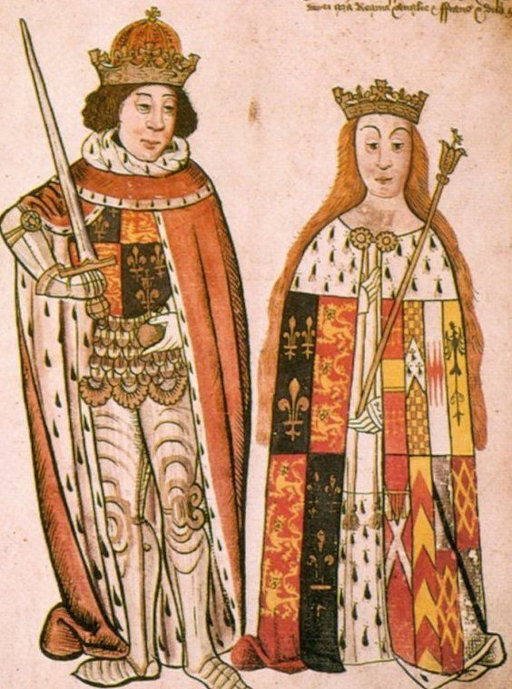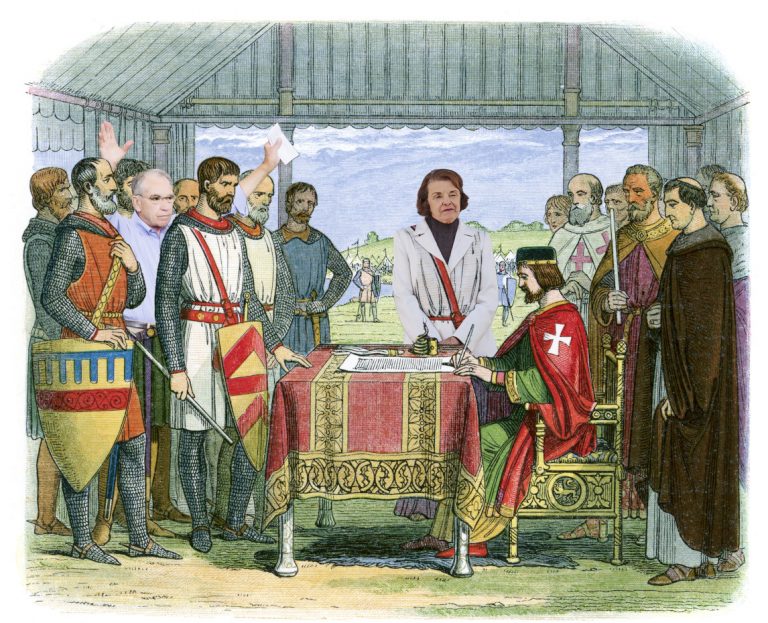The year was 1198. Richard Couer de Lion had just defeated King Philip Augustus of France at the Battle of Gisor. The dream of Anglo-Norman hegemony in Europe had never been closer to fruition.
Into this Plantagenet Golden Age, at the Châteaux d’Angers, moderate California Republican Dianne Feinstein was born.

Dianne was always close to the Halls of Power. Her father was a courtier at John Plantagenet’s Court when he was Lord of Ireland. She parlayed that connection into a unpaid political internship with the Bishop of Winchester. Once protected by the moats of power, she never looked back.

Dianne’s moderation was first revealed by her across-the-isle negotiations with the Barons, during the Magna Carta crisis of 1214-1215. Notes one historian, “Its fair to say that if Dianne hadn’t been such an effective negotiator, the Commoners would have been better represented in the Magna Carta.”

Little is known about the next 600 years of Diane’s life. Most of it was conducted in drawing rooms, smoke-filled dining halls and behind the servants’ tent at tournaments. The rest is obscured by the mists of time.

Capitalism hit Senator Feinstein hard because her brand of politics is at the core feudal. When WWI destroyed the political power of the European aristocracy, she was forced to broaden her support base to include media magnates, trial lawyers and gamblers. And there her support remains to this day.
So on Senator Feinstein’s 824th birthday we find ourselves wishing her another hundred years of governance.
And to paraphrase Hemingway, “Ask not for whom the Senator shills, she shills for you.”


